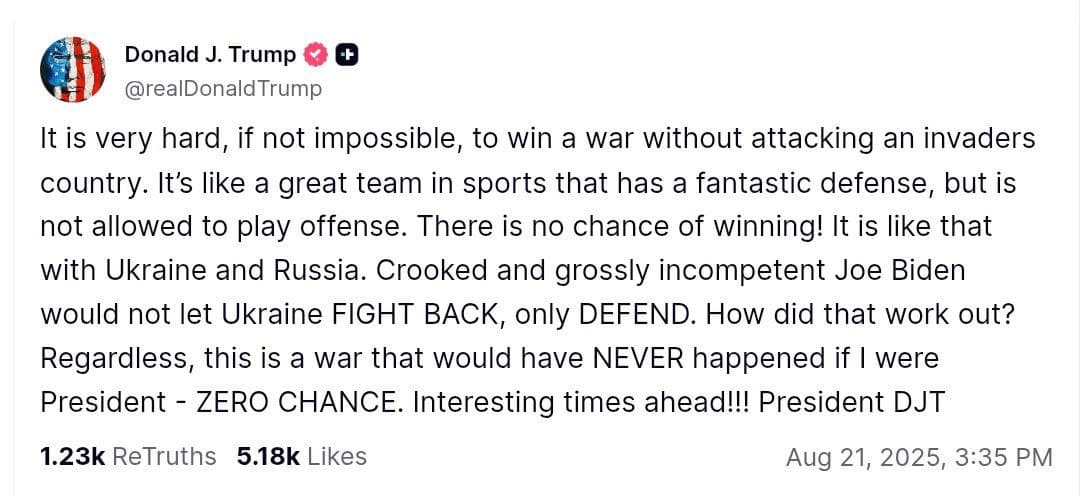Breaking: Trump Blames Biden for Ukraine"s Struggles in War
In a striking statement earlier today, former President Donald Trump criticized President Joe Biden"s handling of the ongoing conflict in Ukraine, asserting that Biden"s policies have hindered Ukraine"s ability to "fight back" against Russian aggression. Trump emphasized that it is "hard, if not impossible, to win a war without attacking an invader"s country," underscoring his belief that a more aggressive military strategy is necessary for Ukraine to reclaim its territory.
Trump"s Assertions on Military Strategy
During a recent interview, Trump elaborated on his views regarding the war in Ukraine, which has now entered its third year. He stated that Ukraine"s current defensive posture is insufficient against a well-armed and determined Russian military. "They need to take the fight to the enemy," Trump said. Citing historical conflicts, he argued that successful military campaigns often involve preemptive strikes and offensive maneuvers. This narrative aligns with Trump"s broader foreign policy philosophy, which emphasizes strength and deterrence.
According to recent reports, Ukraine has received substantial military aid from Western nations, amounting to over $75 billion since the start of the conflict. However, Trump contends that this support has not translated into effective action on the battlefield. "It"s time for a new strategy that actually works," he remarked, echoing sentiments shared by several military analysts who argue for a reevaluation of Ukraine"s military tactics.
Implications of Trump"s Statements
Trump"s comments come at a critical juncture in U.S.-Ukraine relations. The Biden administration has faced scrutiny from various political factions regarding its approach to the war, with some critics advocating for a more robust military commitment to Ukraine. Trump"s remarks could further polarize opinions within the Republican Party, where views on foreign intervention are divided. His call for a more aggressive stance might resonate with a segment of the party that favors a hawkish approach to international threats.
This situation also has broader implications for U.S. foreign policy, particularly as it relates to NATO and European security. A shift toward a more aggressive military strategy could provoke backlash from European allies who may prefer diplomatic solutions to the conflict. Recent developments in U.S. military support, including the potential air deployment to Ukraine, may also be influenced by the growing debate surrounding military strategies in the region as previously reported.
What Happens Next?
The coming weeks will be pivotal in determining the trajectory of U.S. support for Ukraine. With midterm elections approaching, both parties will likely reassess their positions on military aid and foreign policy. Trump’s influence remains significant within the Republican base, and his views may shape the party"s platform moving forward. Additionally, the Biden administration is expected to respond to Trump"s critique, potentially recalibrating its strategy based on both domestic and international feedback.
As the conflict in Ukraine continues to evolve, observers will be closely watching for any changes in military strategy or shifts in diplomatic relations. The outcomes of these discussions could ultimately affect not only the war in Ukraine but also the broader geopolitical landscape in Europe and beyond.



![[Video] Gunfire between Iraqi security forces and Sadr militias in Baghdad](/_next/image?url=%2Fapi%2Fimage%2Fthumbnails%2Fthumbnail-1768343508874-4redb-thumbnail.jpg&w=3840&q=75)
